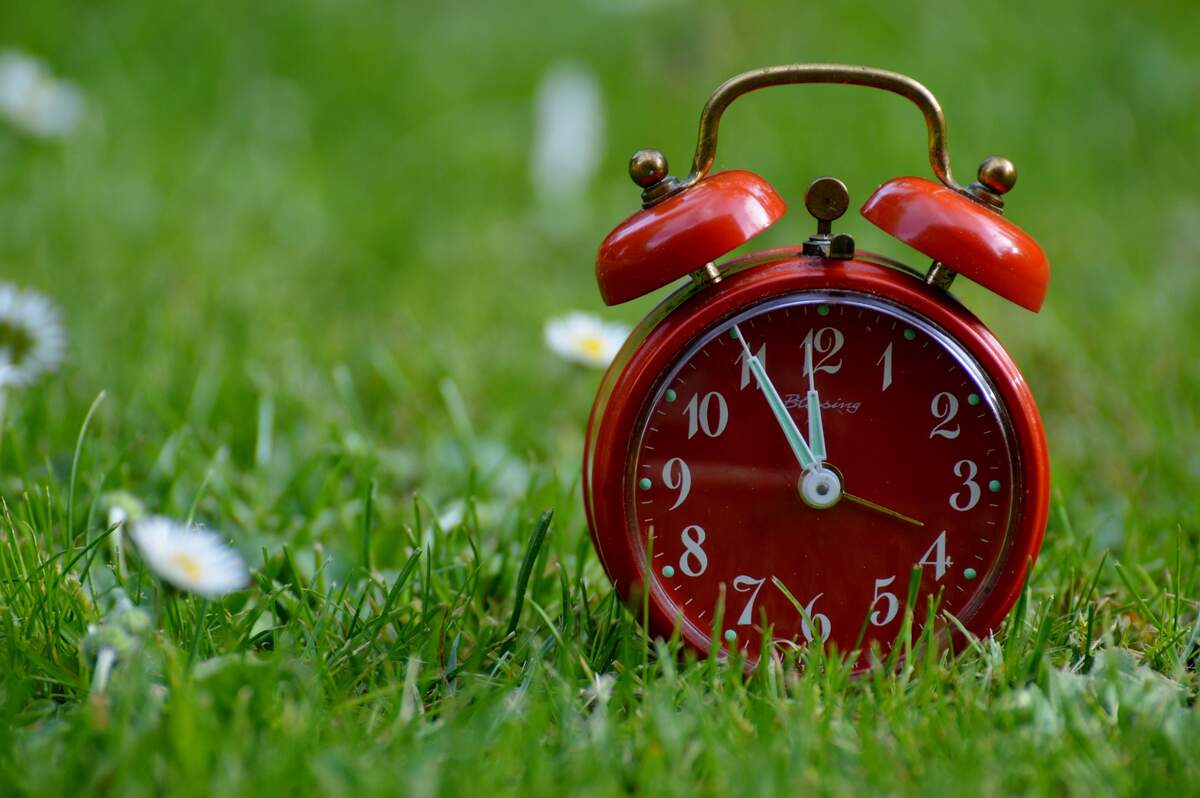
Ever wondered why sometimes you're wide awake at 3 AM or why hunger strikes like clockwork? Well, that's your biological clock ticking away! April 28th marks Biological Clock Day, a day dedicated to understanding the intricate timing system within us that influences our daily routines, from sleep to metabolism. Why do we even have a day for it, you ask? Because this internal clock plays a pivotal role in our health and well-being, and getting to know how it ticks can lead to better health choices and a deeper understanding of ourselves. So, let's dive into the fascinating world of circadian rhythms and discover some eye-opening facts about our own biological clocks. Ready to tick-tock through some intriguing insights?
Key Takeaways:
- Biological Clock Day, celebrated on April 28th, honors the scientists who unraveled the secrets of our internal rhythms. Understanding our biological clocks can lead to better health and well-being.
- Our daily routines, sleep patterns, and even mood are influenced by our biological clocks. Celebrating Biological Clock Day encourages us to appreciate and align with these natural rhythms for a healthier life.
What is Biological Clock Day?
Biological Clock Day, observed on April 28th, shines a spotlight on the internal mechanisms that regulate our daily physiological patterns. Known as circadian rhythms, these natural processes influence sleep, hunger, hormone levels, and even mood. Celebrating this day helps raise awareness about the importance of understanding our body's natural rhythms and how they impact our overall health and well-being.
Why April 28th?
- April 28th was chosen for Biological Clock Day to honor the groundbreaking work of scientists Jeffrey C. Hall, Michael Rosbash, and Michael W. Young. Their research on the molecular mechanisms controlling the circadian rhythm won them the Nobel Prize in Physiology or Medicine in 2017. This date serves as a tribute to their contributions and encourages further exploration into circadian biology.
The Importance of Circadian Rhythms
-
Circadian rhythms are crucial because they dictate our sleep-wake cycles, feeding patterns, brain activity, and hormone production. Disruptions in these rhythms can lead to various health issues, including sleep disorders, obesity, diabetes, depression, and seasonal affective disorder.
-
Recognizing the signs of a disrupted biological clock can lead to better health outcomes. Symptoms include persistent sleep problems, daytime fatigue, difficulty concentrating, and mood swings. Awareness and understanding can prompt individuals to seek adjustments in their lifestyle or medical advice.
How to Celebrate Biological Clock Day
-
Engage in activities that promote a healthy sleep cycle. This could involve establishing a regular bedtime routine, reducing screen time before bed, and creating a comfortable sleep environment.
-
Educate yourself and others about the science of circadian rhythms. Reading articles, watching documentaries, or attending seminars can broaden your understanding of how biological clocks influence health.
-
Advocate for policies that support circadian health. This might include promoting work schedules that align with natural light patterns or supporting research on circadian rhythms.
The Impact of Light on Our Biological Clock
-
Exposure to natural light during the day and darkness at night is essential for maintaining a healthy circadian rhythm. Light acts as a cue for our biological clocks, helping to regulate sleep patterns and hormone levels.
-
Artificial light, especially blue light from screens, can disrupt our circadian rhythms. Limiting screen time in the evening and using blue light filters can help mitigate these effects.
The Role of Diet and Exercise
-
Eating meals at regular times each day can support your circadian rhythm by reinforcing a consistent cycle of energy intake and expenditure. Avoiding heavy meals or caffeine close to bedtime can also promote better sleep.
-
Regular physical activity, particularly in the morning or afternoon, can strengthen circadian rhythms and improve sleep quality. Exercise acts as a powerful signal to the body, helping to align internal processes with the external environment.
The Future of Circadian Research
-
Ongoing research into circadian rhythms holds promise for new treatments for a wide range of conditions. Understanding how the biological clock influences disease could lead to novel therapies for sleep disorders, mental health issues, and metabolic diseases.
-
Advances in technology, such as wearable devices that track sleep and activity patterns, are making it easier for individuals to monitor their circadian health and make informed lifestyle choices.
-
Scientists are also exploring how genetic variations affect individual circadian rhythms. This research could lead to personalized medicine approaches that tailor treatments and lifestyle recommendations based on a person's unique biological clock.
Celebrating Achievements and Looking Ahead
-
Biological Clock Day not only commemorates the achievements of past researchers but also highlights the ongoing quest for knowledge in the field of circadian biology. It's a day to appreciate the complex interplay between our internal clocks and the external world.
-
As we continue to learn more about the intricacies of circadian rhythms, we can look forward to advancements that will enhance our health and well-being. Celebrating Biological Clock Day encourages a deeper appreciation for the natural rhythms that govern our lives and opens up conversations about how we can live in harmony with our biological clocks.
A Final Nod to Biological Clock Day
Biological Clock Day on April 28th serves as a gentle reminder of our body's natural rhythms and how they influence our daily lives. From sleep patterns to metabolism and mood, understanding and respecting our biological clocks can lead to improved health, well-being, and overall happiness. Celebrating this day isn't just about acknowledging the science behind our physiological processes; it's also about taking actionable steps towards syncing our lifestyle with our body's natural cues. Whether it's adjusting sleep schedules, eating habits, or finding time for relaxation and exercise, small changes can make a big difference. So, let's use this day as a motivation to listen more closely to what our bodies are telling us and make adjustments that foster a healthier, more harmonious life.
Frequently Asked Questions
Was this page helpful?
Our commitment to delivering trustworthy and engaging content is at the heart of what we do. Each fact on our site is contributed by real users like you, bringing a wealth of diverse insights and information. To ensure the highest standards of accuracy and reliability, our dedicated editors meticulously review each submission. This process guarantees that the facts we share are not only fascinating but also credible. Trust in our commitment to quality and authenticity as you explore and learn with us.


